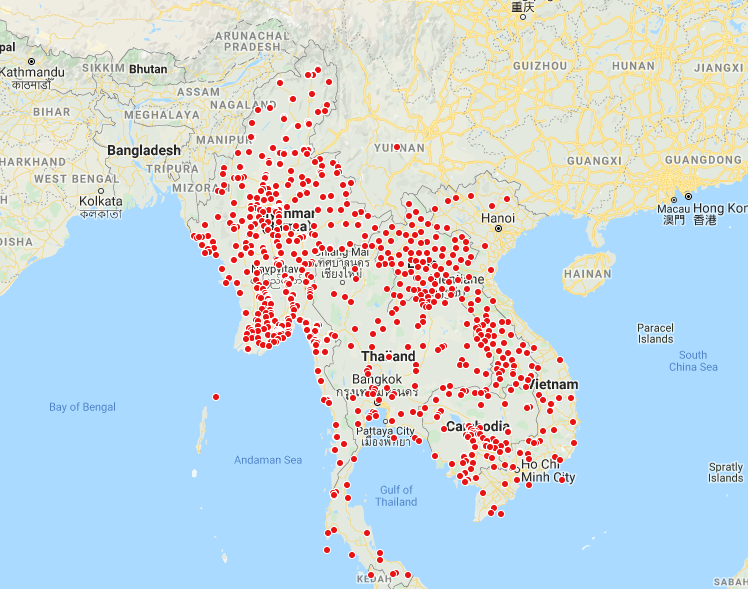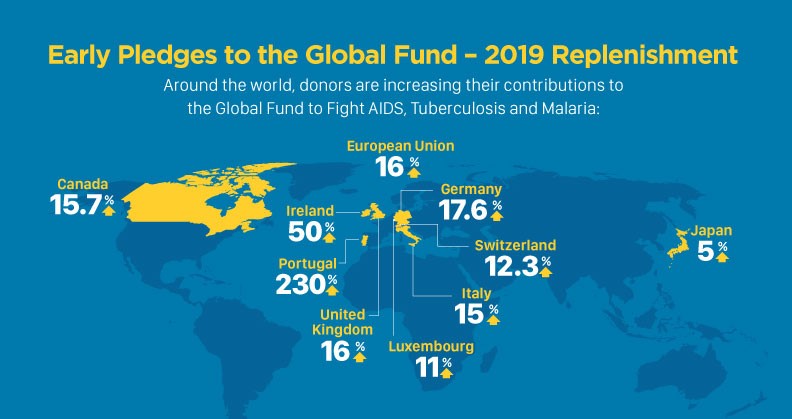Source: Médecins Sans Frontières
In recent years, a conflagration of humanitarian emergencies throughout the world has resulted in an incredible increase in the number of displaced persons. In 2018 alone, UNHCR reported a record 70.8 million people who had been forcibly displaced—this equates to 34,000 forcible displacements every day.
This increase in humanitarian emergencies and resulting displacement has implications for the spread of malaria. Forcibly displaced populations are often at greater risk of disease due to their high levels of mobility, poor living conditions, decreased access to health services, poor water access and management, and weakened immunity. For malaria, in particular, issues like camp site flooding can contribute to disease resurgence as it creates a breeding ground for mosquitos. Further, if displaced persons are seeking shelter in the bush, or arriving at transit centers, they likely do not have an adequate place to hang a long-lasting insecticidal net (LLIN), and prevention methods such as indoor residual spray are difficult to implement rapidly.
Malaria control programs, like other disease control programs, suffer from a lack of access to vulnerable displaced populations, low availability of health products, weakened health systems, and inadequate access to data. Further complicating matters, the socio-political landscape of humanitarian emergencies can result in a culture of fear and rumors that can hinder service delivery.
There are, however, strong examples of successful malaria interventions in humanitarian emergency contexts that can be instructive to informing future efforts. One example, in the Borno State of Nigeria, demonstrates how creative health service delivery mechanisms can help to disrupt malaria transmission. Severe food insecurity and famine, exacerbated by military conflict resulted in 1.4 million internally displaced persons, all in areas of hyper-endemic malaria. With a shortage of LLINs, and few options for standard vector control, UNICEF and WHO came together to undertake a Seasonal Malaria chemoprevention (SMC) campaign for children under the age of five. UNICEF agreed to deliver the SMC alongside their polio vaccination campaign, targeting 1,116,000 children in July 2017.
Source: UNICEF Nigeria
The RBM Partnership’s Vector Control in Humanitarian Emergencies Working Group, a subset of its Vector Control Working Group, is advancing efforts for cluster coordination and improved malaria interventions during humanitarian emergencies. Today, the existing World Health Organization Technical Guidance on the issue is in the process of being updated and re-written with the aim of transforming the guidance into a concise guide for effective malaria control responses in humanitarian emergencies. The guide will distill factors for success, building on lessons learned in humanitarian emergency settings.
Early findings suggest that successful malaria interventions aimed at displaced populations share the following attributes: a rapid response through the engagement of local actors, a concentrated effort among partners, continuous dedicated leadership, specific support for tracking key activities, the development of emergency preparedness plans, and the establishment of cross-level technical teams, inclusive of country representation.
We look forward to the launch of the guide later in 2020!







